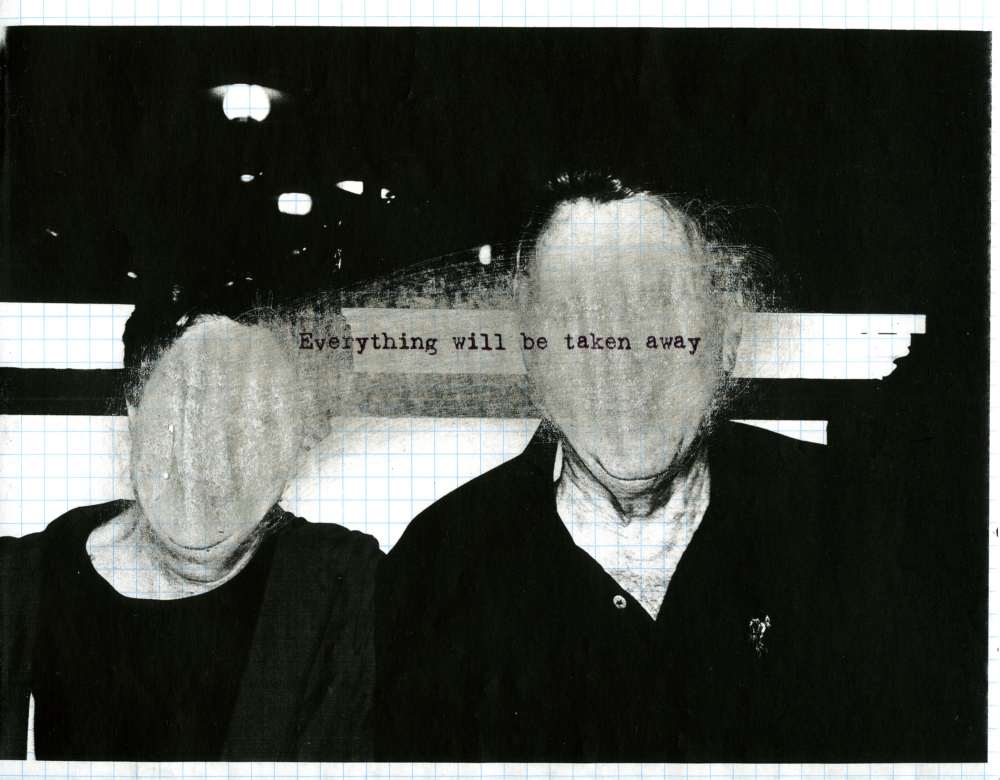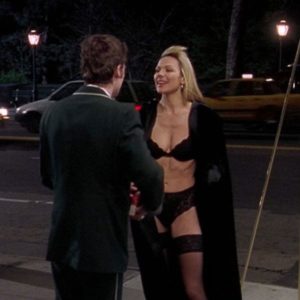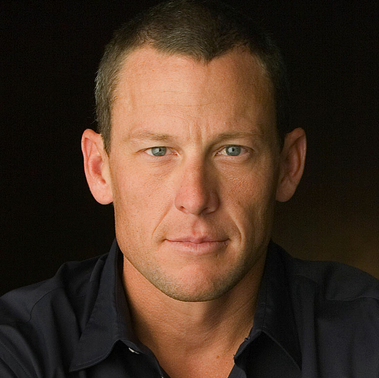
At a time of year when everyone around me seems to be slowing down, I’ve been ramping up to envision the kind of fall and winter that I want to have.
On the writing front, I’ll be seeking a publishing deal, but first I have to finish two projects.
My book alternates between arguments about finding good work and free-standing but related short stories that consider jobs, values and motivations from more personal perspectives. I’ve almost finished writing the story that ends the last chapter. My arguments are already fleshed out. With both in mind, I can turn to writing the submission package that will sell the book.
There’ll be a gratifying sense of completion when I finish these preliminaries, but also a point of departure. As I finish these projects, I’m also be envisioning the future that I want next–which is to bring out a book that can reach the audience it’s intended for.
The picture above speaks to me about this kind of “looking forward.” It’s one of J.R.R. Tolkien’s watercolors, painted when he was first envisioning the world of “The Hobbit.” (It, along with other of his visualizations for that book, is currently on view at Oxford’s Bodleian Library.) As a storyteller, Tolkien used watercolors like this to help him “see” what he’d soon be writing about.
His image projects a sense of order, calm and beauty onto a Middle Earth that would soon be challenged by evil forces. It’s a utopian view of the future that tells you what you’ll be fighting for when the battle is joined. For my book, I’m creating a hopeful vision that can help me to counter the stress and rejection that are likely ahead of me. And last but hardly least, Tolkien’s watercolor also recalls how little optimism there is in our collective envisioning today. We can all see dystopian futures ahead, but too few of us can see better ones.
What is it about our time that makes it so difficult to envision a better future for ourselves, for our children, and for their children? Why is there so little optimism today, and who can help us to find a measure of hope?
John Seely Brown, whose vision I tried to capture here last week, is not the only one who is cautiously optimistic in the face of a future that is hurtling at us faster than we can process it. But before introducing Jed Purdy’s ethics and field of vision, a few more words about the deficits of hope and attention that need to be confronted before we can look into the future with any confidence.
One Perspective on Today’s Pessimism
Espen Hammer, who teaches philosophy at Temple University, has been thinking about “utopias” or “visions of a better world” recently, and why they’re playing almost no role in our conversations with one another today.
He reminds us that debating the futures we’d like to see has always driven progress before, “providing direction and a sense of purpose to struggles for social change and emancipation.” But after reviewing the impact of this process through history, Hammer notes in a recent New York Times essay that optimistic debate about the future that we want for ourselves has largely ground to a halt.
Today, the utopian impulse seems almost extinguished. The utopias of desire make little sense in a world overrun by cheap entertainment, unbridled consumerism and narcissistic behavior. The utopias of technology are less impressive than ever now that — after Hiroshima and Chernobyl — we are fully aware of the destructive potential of technology. Even the internet, perhaps the most recent candidate for technological optimism, turns out to have a number of potentially disastrous consequences, among them a widespread disregard for truth and objectivity, as well as an immense increase in the capacity for surveillance. The utopias of justice seem largely to have been eviscerated by 20th-century totalitarianism. After the Gulag Archipelago, the Khmer Rouge’s killing fields and the Cultural Revolution, these utopias seem both philosophically and politically dead.
In other words, Hammer is less optimistic than Brown when it comes to “utopias of technology” and has no hope at all for “utopias of justice.” Instead his imagination is clouded by “the two fundamental dystopias of our time: those of ecological collapse and thermonuclear warfare.”
It’s a bleak prognosis.
The only glimmer of hope that Hammer can identify is found in “nature, and the relationship that we have to it.” But instead of envisioning a better relationship with the natural world, all Hammer can say is that “we desperately need to conceive of alternative ways of inhabiting the planet.”
Is our hope today really this desperate and uncertain?
A Tipping Point
Unlike Professor Hammer, I think we’re at more of a tipping point when it comes to the possibilities of technology, justice and humanity’s co-existence with nature.
We’re at a point where individuals with bold utopian visions—together with those who believe in them—can tip the balance in favor of a better future. But many of us-most of us-nearly all of us are either oblivious or like deer frozen in the headlights. Far too often, it’s been my story too. But our clouded future merits a more active response, particularly when individual willpower can still make a difference. Unfortunately, I can always find reasons to explain away my failures to act.
The Future Is Coming At Me Too Fast to Do Anything More Than Meet It
Whole industries can change in a heartbeat. Think local travel (Uber, Lyft). Remote travel (Airbnb). Outside shopping (Amazon). Personal transport (self-driving cars). Our phones change, the apps on them change, how we use them and protect them changes. We’re so busy keeping up with the furious pace of change, we can’t think about any future other than the leading edge of it that we’re experiencing right now.
I’m Too Absorbed By My Immediate Gratifications To Think Long-Term
The addictiveness of social media. The proliferation of entertainment to listen to, watch, and get lost in. The online availability of every kind of diverting information. A consumer economy that meets every real and imagined need for those who can afford it. We move between jobs that fail to engage us to leisure time that gratifies us into a kind of torpor. We’re too sedated by the warm bath we’re in now to worry about a future that hasn’t arrived yet.
My Self-Worth Is So Tied To My Politics That I Can’t Escape the Circus of It For Long Enough To Envision a Better Tomorrow
The widening political divide is another trap. The vision we have of our ideal selves—for example, what we believe about freedom or social justice—is so caught up in the political logjam that we are increasingly unable to solve shared problems with anyone who has “conflicting” values or to summon up the vision that real solutions require.
My General Laziness and Inertia
And not just during the dog days of August….
Of course, these “reasons” are also “excuses” that my willpower can overcome. So I write as much for myself as this newsletter about individuals who face the same personal shortcomings and dystopian futures that I do but can still manage to act with something like hope:
-how dissenters like Edward Snowden share a vision of the future they believe in, invite others to join it, and, by doing so, enable everyone involved in the debate to clarify their own commitments (6/3/18 and 6/10/18 newsletters);
-how Martin Luther King framed the world that he wanted to live in, and how when facing our own moral choices about the future we can ask ourselves: “If MLK would be on the other side of where I happen to be on this question-why?” (4/15/18); and
-how German philosopher Jurgen Moltmann attempted to find a glimmer of Christian hope in the ashes of Nazi Germany by grappling with the crucifixion as well as the resurrection (7/23/18).
The internal and external challenges to a hopeful future are daunting, but so are the consequences when we remain on the sidelines because of our cluelessness, future shock, inertia, lack of information and deficits of courage.
The Future of the Anthropocene
Jed Purdy is a Duke law professor who also teaches at the school’s Kenan School of Ethics. In writings that culminated in “After Nature: A Politics for the Anthropocene” (2015), Purdy defined the “age of humanity” when humanity became a force, perhaps the dominant force, in shaping the planet. In an interview when his book was published, Purdy said ours is an age “when there is no more ‘nature’ that’s independent of human activity.”
Because the fates of nature and humanity are interdependent today, Purdy argues that the future of the world “is an unavoidable political question” and that “world-making” going forward is “a collective project, like it or not.” He elaborates on one way that this kind of political problem-solving can play out:
Because the economy is, in a sense, what produces ecological reality under Anthropocene conditions, this means the economy, too, has to be a political problem. Instead of absorbing ecology into the existing economy, we should think about [other] possible economies in relation to the possible ecologies we’d like to inhabit.
In other words, instead of using “nature” simply to fuel our economic wellbeing, we should consider the kind of “natural world” that we want to live in as an essential part of the political debate. “Nature” has value to us separate and apart from its economic utility in the discussion that we need to have. If we fail to honor this critical distinction, Purdy fears that “nature” will continue to be degraded if not destroyed altogether.

For Purdy, it’s a question of ethics, and of expanding our priorities, because:
what people believe and value, how they see the world, can enable them to organize and act politically in ways that they couldn’t, or wouldn’t, otherwise. Imagination frames problems and changes the boundaries of possible response.
But for the political exchange between humanity’s (economic) and nature’s (ecological) priorities to be vibrant enough, we also need to expand the framework of what we value beyond our economic well-being, complimenting our material priorities with our non-material ones–much as economist/philosopher Amartya Sen has also argued. (Sen’s thinking was briefly discussed here on 5/6/18.) By way of example for the political debate that he has in mind, Purdy recommends:
what the Romantic social movement around the early Sierra Club did, or what certain aspects of the food movement are doing now. Start with something that was regarded as a burden or a bad thing—deserted and unfruitful high mountains, [local farm] labor in the dirt—and turn it into a source of satisfaction, build new kinds of community and identity around those, and feed them back into the political system as demands to create the infrastructure that makes those newly valued ways of living possible.
It would produce a richer array of priorities and, at least potentially, the kind of political exchange that could strike a more productive accommodation between nature and humanity in the Anthropocene.
While Purdy is as disgusted as anyone with the current state of political discourse, because political decision-making on a broad enough scale is the only mechanism that’s available to build a better future, he won’t give up on politics. Still, Purdy’s hope that we’ll be able to come together in a political framework for the sake of the world is both narrow and cautious.
Currently, there are no institutions, movements, or even feelings of commonality that could support acting on the scale of climate change…[but] I’m not prepared to say we should treat our contingently broken and incapable politics as if it were some kind of intrinsic ethical constraint.
His vision for a natural world we want to live in may seem “utopian”—or pie in the sky—but Purdy and others are struggling mightily to see the future in broad enough terms that healthier more sustainable ways forward can be proposed, debated by the world’s stakeholders, and acted upon before the challenges ahead become even more daunting.
I keep coming back to this quote from the end of the equally tumultuous 19thCentury when Oscar Wilde was struggling to envision a better future.
A map of the world that does not include Utopia is not worth even glancing at, for it leaves out the one country at which humanity is always landing.
With whatever optimism and focus we can muster, I keep telling myself that each one of us has a role to play in envisioning–and making–that better world.
See you next Sunday.



 Adrian Piper is a white-looking black woman. Not surprisingly, race and gender have been two of her lifelong preoccupations, but that doesn’t mean she falls into a presumed political category. Instead Piper seems to know more about “our fishbowl” because essential parts of her have spent so much time outside of it. As a result, she’s ended up approaching nearly everything “her way.”
Adrian Piper is a white-looking black woman. Not surprisingly, race and gender have been two of her lifelong preoccupations, but that doesn’t mean she falls into a presumed political category. Instead Piper seems to know more about “our fishbowl” because essential parts of her have spent so much time outside of it. As a result, she’s ended up approaching nearly everything “her way.” Piper went to art school in New York City at the end of the 1960’s. Over the next ten years her texts, videos and performance art aimed at challenging viewers and readers to take a clear-eyed stand for themselves. For example, she often used her own body as a primary image for unannounced public performances, such as walking City streets soaked with wet paint or wearing an Afro wig, fake mustache and mirrored sunglasses to confront people with the stereotype of a young aggressive black male whom she called the Mythic Being. During this time, Piper also got her doctorate in philosophy from Harvard. She has been producing works of art and philosophy ever since.
Piper went to art school in New York City at the end of the 1960’s. Over the next ten years her texts, videos and performance art aimed at challenging viewers and readers to take a clear-eyed stand for themselves. For example, she often used her own body as a primary image for unannounced public performances, such as walking City streets soaked with wet paint or wearing an Afro wig, fake mustache and mirrored sunglasses to confront people with the stereotype of a young aggressive black male whom she called the Mythic Being. During this time, Piper also got her doctorate in philosophy from Harvard. She has been producing works of art and philosophy ever since.

 As Emily grew up, my priority was wonder management until risk management reared its head–but not as a series of global threats. Instead, it was when I discovered one of her elementary school friends cutting off the heads of Barbie dolls in a room upstairs; when 5th grade girls with Netflix accounts found Sex in the City during a sleepover; and when middle school boys were grinding like gangstas in our kitchen. Not to dwell on it, but there is almost nothing more shocking to a girl-power dad than walking in on your 10-year old when she’s somehow watching Samantha on her TV. That cat can never be put back in the bag.
As Emily grew up, my priority was wonder management until risk management reared its head–but not as a series of global threats. Instead, it was when I discovered one of her elementary school friends cutting off the heads of Barbie dolls in a room upstairs; when 5th grade girls with Netflix accounts found Sex in the City during a sleepover; and when middle school boys were grinding like gangstas in our kitchen. Not to dwell on it, but there is almost nothing more shocking to a girl-power dad than walking in on your 10-year old when she’s somehow watching Samantha on her TV. That cat can never be put back in the bag.
